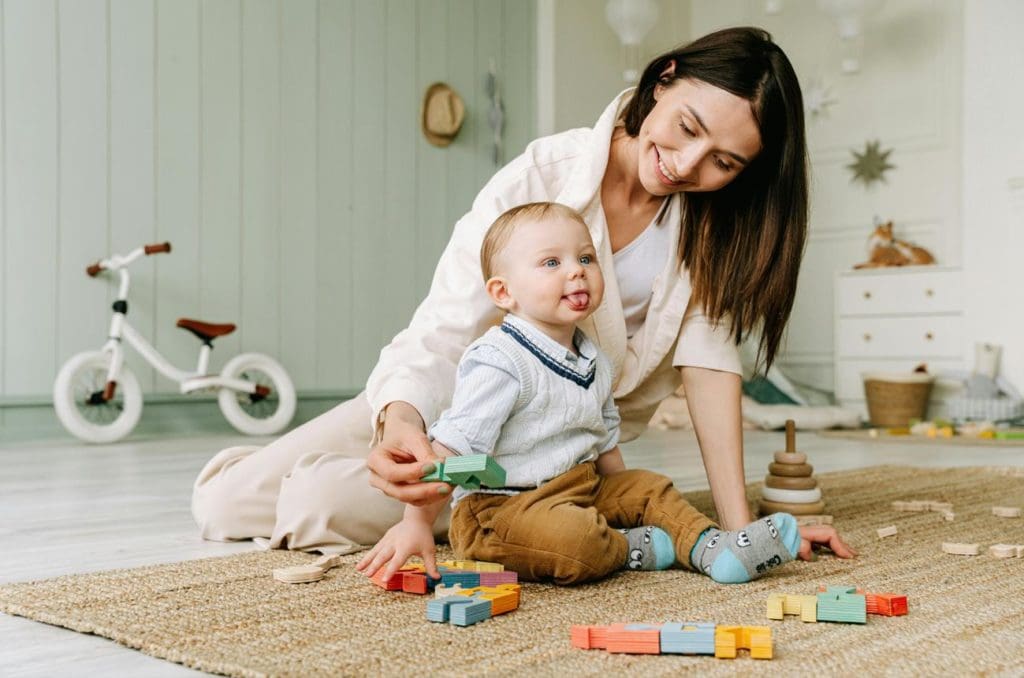
Healthy Living Tips for Families with Young Children
Raising a healthy family starts with everyday choices that promote wellness in mind, body, and spirit. For families with young children, building strong habits early can lay the foundation for a lifetime of well-being. From nutrition and exercise to emotional health and screen time balance, every action counts. This beginner-friendly guide offers simple, practical, and family-focused healthy living tips that you can start using today—right at home.
Create a Consistent Family Routine
Young children thrive on structure. Routines help regulate sleep, behavior, and energy levels.
Tips for creating routines:
-
Set regular times for waking, eating, and bedtime
-
Include morning and evening rituals (e.g., brushing teeth, reading)
-
Keep weekends flexible but balanced
-
Use charts or visuals to help children follow routines
-
Offer praise for routine participation
A predictable rhythm gives children a sense of safety and reduces daily stress for parents too.
Make Mealtimes Nutritious and Fun
Healthy eating doesn’t mean strict dieting—it means balance and variety.
Family-friendly nutrition tips:
-
Serve fruits and vegetables at every meal
-
Offer whole grains instead of refined carbs
-
Limit sugary drinks—choose water or milk
-
Prepare meals together when possible
-
Let kids build their plates from healthy options
Encourage kids to try new foods, but avoid pressure. Making food fun and colorful helps increase curiosity and appetite.
Encourage Daily Physical Activity
Children need at least 60 minutes of physical activity per day. Movement supports bone development, heart health, and emotional well-being.
Easy ways to stay active as a family:
-
Dance together at home
-
Play tag, hide-and-seek, or hopscotch in the yard
-
Take walks or bike rides together
-
Visit local parks or playgrounds
-
Try family yoga or stretching
Lead by example. When children see adults enjoying exercise, they naturally want to join in.
Prioritize Quality Sleep
Sleep is critical for growth, mood regulation, and learning in young kids—and adults too.
Sleep tips for families:
-
Create a calming bedtime routine (e.g., bath, story, lullaby)
-
Avoid screens at least 1 hour before bed
-
Keep bedrooms dark, cool, and quiet
-
Stick to consistent sleep and wake times—even on weekends
-
Use a comfort item like a blanket or stuffed toy if needed
Well-rested children are better able to focus, play, and interact positively.
Limit Screen Time
While technology can be educational, too much screen time can interfere with sleep, attention, and physical activity.
Healthy screen time habits:
-
Limit screens to under 1 hour per day for ages 2–5
-
Choose high-quality, age-appropriate content
-
Watch together and discuss what you see
-
No devices at meals or in bedrooms
-
Replace screen time with books, crafts, or outdoor play
Set clear rules and explain why balance matters.
Promote Emotional Wellness
Helping children understand and manage their emotions builds confidence and resilience.
Ways to support emotional health:
-
Name and validate their feelings (“You seem upset. That’s okay.”)
-
Teach simple breathing exercises for calming down
-
Use emotion charts or storybooks to explore feelings
-
Encourage open conversations and active listening
-
Be a calm, responsive role model
Emotionally supported children feel more secure and are better able to handle life’s ups and downs.
Stay Hydrated Together
Hydration is essential for digestion, concentration, and energy levels—especially in active kids.
Hydration tips:
-
Give each child a fun, reusable water bottle
-
Flavor water with fruit slices (e.g., lemon, berries)
-
Offer water regularly throughout the day
-
Include water breaks during play and meals
Avoid over-relying on juice and soda. Water should always be the main beverage of choice.
Make Health a Family Activity
Healthy habits stick better when done as a team. Involve everyone in the journey.
Ideas to try together:
-
Plan and cook meals as a family
-
Do “screen-free Sundays” and go on hikes or picnics
-
Start a family wellness jar with activity ideas
-
Garden or grow herbs together
-
Celebrate small health milestones
A family that works together on wellness grows stronger—physically and emotionally.
Be Prepared with Healthy Snacks
Kids get hungry quickly, and poor snack choices can lead to sugar crashes or crankiness.
Smart snack choices:
-
Apple slices with nut butter
-
Yogurt with berries
-
Whole grain crackers and cheese
-
Carrot sticks with hummus
-
Homemade smoothies
Keep healthy snacks prepped and ready so there’s less temptation to grab junk food on the go.
Teach Basic Hygiene Habits
Good hygiene helps prevent illness and teaches kids to take care of themselves.
Hygiene routines to teach early:
-
Washing hands before meals and after using the bathroom
-
Brushing teeth twice a day with supervision
-
Bathing regularly and learning to wash properly
-
Covering coughs and sneezes with a tissue or elbow
-
Changing clothes and underwear daily
Make hygiene part of the routine—explain its importance in a fun, age-appropriate way.
Create Tech-Free Zones at Home
Too much screen exposure can lead to sleep and behavioral issues. Creating boundaries helps.
Where to go screen-free:
-
Bedrooms (for better sleep)
-
Dining table (to encourage conversation)
-
Outdoors (to enjoy nature)
-
During homework or study time
Use these moments to engage more with each other and build stronger family bonds.
Encourage Curiosity and Learning
Wellness includes mental stimulation. Support curiosity with open-ended play and exploration.
Brain-boosting activities:
-
Read together daily
-
Play board games or puzzles
-
Explore science kits or building toys
-
Visit libraries or museums
-
Let them ask questions and research answers together
Learning through play is powerful and supports brain development at every stage.
Keep Up with Health Checkups
Routine doctor and dentist visits help monitor growth and catch any health issues early.
Health checks to schedule regularly:
-
Pediatric visits for immunizations and milestones
-
Dental cleanings every 6 months
-
Vision screenings if needed
-
Hearing tests if speech delays are present
Staying on top of these builds a strong foundation for long-term health.
Practice Gratitude as a Family
Gratitude helps children grow up with a positive mindset and emotional intelligence.
Ways to share gratitude:
-
Each night, take turns sharing one good thing about your day
-
Start a family gratitude jar
-
Write thank-you notes to friends or teachers
-
Express appreciation for meals, hugs, or help
Grateful children tend to be happier, more resilient, and kinder to others.
Conclusion
Raising healthy children doesn’t require perfection—just consistency, love, and simple daily habits. From nutritious meals and joyful movement to good sleep and emotional support, families can build a lifestyle of wellness right at home. The most powerful lesson? Kids learn what they live. When they see health and happiness modeled by their parents, they naturally follow that path too.
Sign up with your email and always get notifed of zerodevicesnet Lifestyles latest news!






